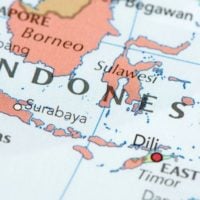Deadline: 10-Apr-2022
The Critical Ecosystem Partnership Fund (CEPF) is looking for consultants or firm to conduct an evaluation of the regional implementation team (RIT) of the Guinean Forests of West Africa Biodiversity Hotspot to inform future involvement in the region.
The RIT provides strategic leadership for the program, which is implemented in Benin, Cameroon, Cote d’Ivoire, Equatorial Guinea, Ghana, Guinea, Liberia, Nigeria, Sao Tome and Principe, Sierra Leone, and Togo.
Objective of the Evaluation
The objective of the evaluation is to inform decisions around CEPF’s future involvement in the Cerrado Biodiversity Hotspot, in the event that future funding becomes available. This may include decisions by CEPF donors regarding selection of a RIT for a future phase of investment, and the optimum programmatic and management approaches for coordinating any future investment.
Criteria for Evaluation
The evaluation will look closely at the components and functions of the Cerrado RIT, as set out in the terms of reference, and evaluate the performance of each member against the following criteria:
-
Relevance
- Were the activities undertaken relevant to the ecosystem profile, RIT terms of reference, the geography of the hotspot, the capacity of civil society there, and the global monitoring framework of CEPF?
-
Efficiency
- How efficiently was the budget allocated to the RIT converted into results?
-
Effectiveness
- What were the strengths and weakness of the RIT structure and capacities regarding effective delivery of results?
In addition to directly evaluating the performance of the RIT, lessons learned from theCEPF grants portfolio regarding the RIT role will be compiled and reviewed in the context of against the following themes:
-
Coverage
- To what extent does the portfolio of grants awarded to date cover the strategic directions and investment priorities set out in the investment strategy for the hotspot?
-
Impact
- To what extent have the targets set in the hotspot ecosystem profile for impacts on biodiversity conservation, human wellbeing, civil society capacity and enabling conditions been met?
-
Accessibility
- Does the grant portfolio involve an appropriate balance of international and local grantees, taking into account the relative strengths of different organizations with regard to delivery of the investment strategy and considering the priority given by CEPF to building the capacity of local civil society?
-
Adaptive management
- In what ways has the development of the grant portfolio been constrained by risks (political/institutional/security/health) or taken advantage of unanticipated opportunities?
Formally Agreed Duties of the Regional Implementation Team
The terms of reference of the Cerrado RIT consist of nine components, which are:
- Coordinate CEPF investment in the hotspot.
- Support the mainstreaming of biodiversity into public policies and private sector business practices.
- Communicate the CEPF investment throughout the hotspot.
- Build the capacity of local civil society
- Establish and coordinate a process for large grant proposal solicitation and review
- Manage a program of small grants of US$20,000 (US$50,000 or less in select approved regions)
- Monitor and evaluate the impact of CEPF’s large and small grants.
- Lead the process to develop, over a three-month period, a long-term strategic vision for CEPF investment.
Duties
A consultancy firm (hereafter “the consultant”) is required to undertake an evaluation of lessons learned to inform reinvestment in the Guinean Forests of West Africa Biodiversity Hotspot, in the context of the abovementioned objective.The consultant is required to field a team with experience of evaluating biodiversity conservation programs, and with adequate knowledge of the countries covered by the RIT.
The evaluation will consider the performance of the RIT in relation to the geography of the hotspot, the capacity of civil society there, the budget allocated, and the achievement of deliverables as defined in the grant agreement with CEPF. It will also consider the impacts of the investment to date (in terms of biodiversity, human well-being, civil society capacity and enabling conditions for conservation), based on the findings of the mid-term assessment for the hotspot and annual portfolio overviews.
Finally, the consultant will review the institutional landscape in the Guinean Forests of West Africa Biodiversity Hotspot and identify candidate organizations that could potentially perform the RIT role (either alone or as part of a consortium). The consultant will prepare a list of potential candidate organizations that will include a brief description of the organization, its grant-making experience, its experience managing a project similar to that of the RIT, and the pros and cons associated with its assuming the role of RIT as lead or consortium member
The evaluation will begin with a desk review based on the following documentation:
- The ecosystem profile for the hotspot.
- The final proposal for the RIT grant.
- The RIT grant agreement plus any amendments.
- Semi-annual performance reports prepared by the RIT.
- Supervision and monitoring reports prepared by the CEPF Secretariat.
- Summary data on the grant portfolio in the hotspot, exported from CEPF’s grant management system.
The desk review will be complemented by interviews with relevant CEPF Secretariat staff, relevant RIT staff, staff of the host organization, a selection of CEPF grantees and applicants, and other relevant stakeholders (e.g., representatives of other donors, government agencies, etc.). The consultancy can be conducted virtually and can also include in-person interactions if current pandemic-related conditions make it safe to do so. The consultant will be expected to organize all necessary meetings with stakeholders.
For more information, visit https://www.cepf.net/grants/open-calls-for-proposals/2022-gfwa-rit-evaluation









































